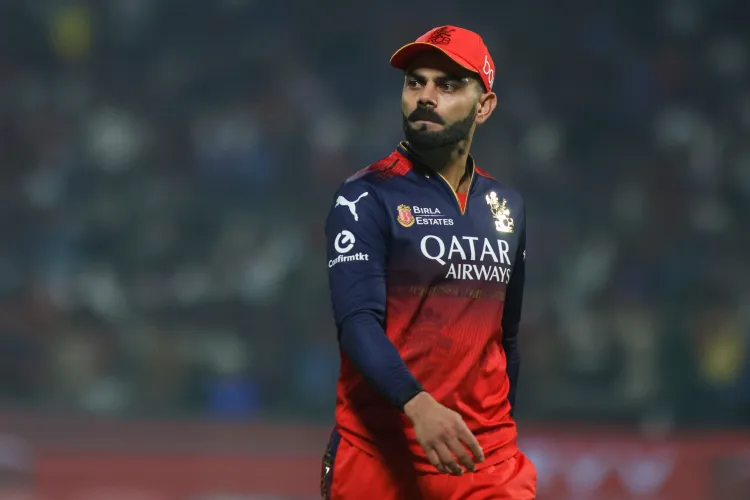Why Did Kohli Step Away from Captaincy Pressure?

Synopsis
Key Takeaways
- Stepping down from captaincy was essential for Kohli's well-being.
- Relationships with fans matter more than titles.
- Guidance from mentors like Boucher, Kirsten, and Dhoni shaped his career.
- Pressure can be overwhelming for athletes, impacting their performance.
- Determination and resilience are key traits for success.
New Delhi, May 6 (NationPress) Former Indian cricket captain and Royal Challengers Bengaluru leader Virat Kohli disclosed that stepping away from the captaincy after over eight years was essential as the pressure was becoming overwhelming.
Kohli initially captained the U-19 Indian team to victory in the U19 World Cup in 2008 before taking charge of both his franchise and the national team. Although he excelled in his leadership position for India, he could not secure a title for RCB.
“There was a time when the demands became tough for me. I captained India for about 7-8 years and RCB for 9 years. Each match came with high expectations regarding my batting performance. It felt like I was always under scrutiny,” Kohli shared on the RCB Podcast – Mindset of a Champion.
“Whether it was captaincy or batting, the pressure was always present. It became increasingly challenging, and that's why I chose to step down. I realized that to be in this position, I needed to find joy and a space in my life where I could play cricket without the constant judgment, without the questions about my performance each season,” he added.
Kohli, now 36, emphasized that his connection with RCB is far more significant than any trophies. “For me, the respect and relationships built over the years with RCB are invaluable. Whether we win or lose, this is my moment. The love from the fans is unparalleled and far exceeds the value of any silverware because that emotional impact lasts a lifetime,” Kohli stated.
He also reflected on the influence of Mark Boucher during his formative years, noting how the South African wicketkeeper recognized his struggle with short balls and worked tenaciously to help him improve.
“Mark Boucher profoundly influenced my early career. He approached me with a genuine desire to assist young Indian players. He identified my weaknesses without me needing to ask and told me, ‘You must work on the short ball; otherwise, you won't succeed in international cricket.’ His relentless support pushed me to enhance my game,” Kohli recalled.
Regarding his entry into the Indian team, Kohli credited Gary Kirsten and MS Dhoni for their guidance in playing at number three during his initial international career.
“I was realistic about my skills, having observed many players before me, and I recognized that my game was not yet at their level. However, my determination to contribute to my team's success was unwavering. This is why I earned my early opportunities with India. Gary and MS clearly communicated their support for me to bat at number three,” Kohli mentioned.
“They emphasized the importance of my energy and engagement on the field. I was never seen as a straightforward match-winner, but my commitment to staying in the fight was what they valued,” Kohli concluded.









